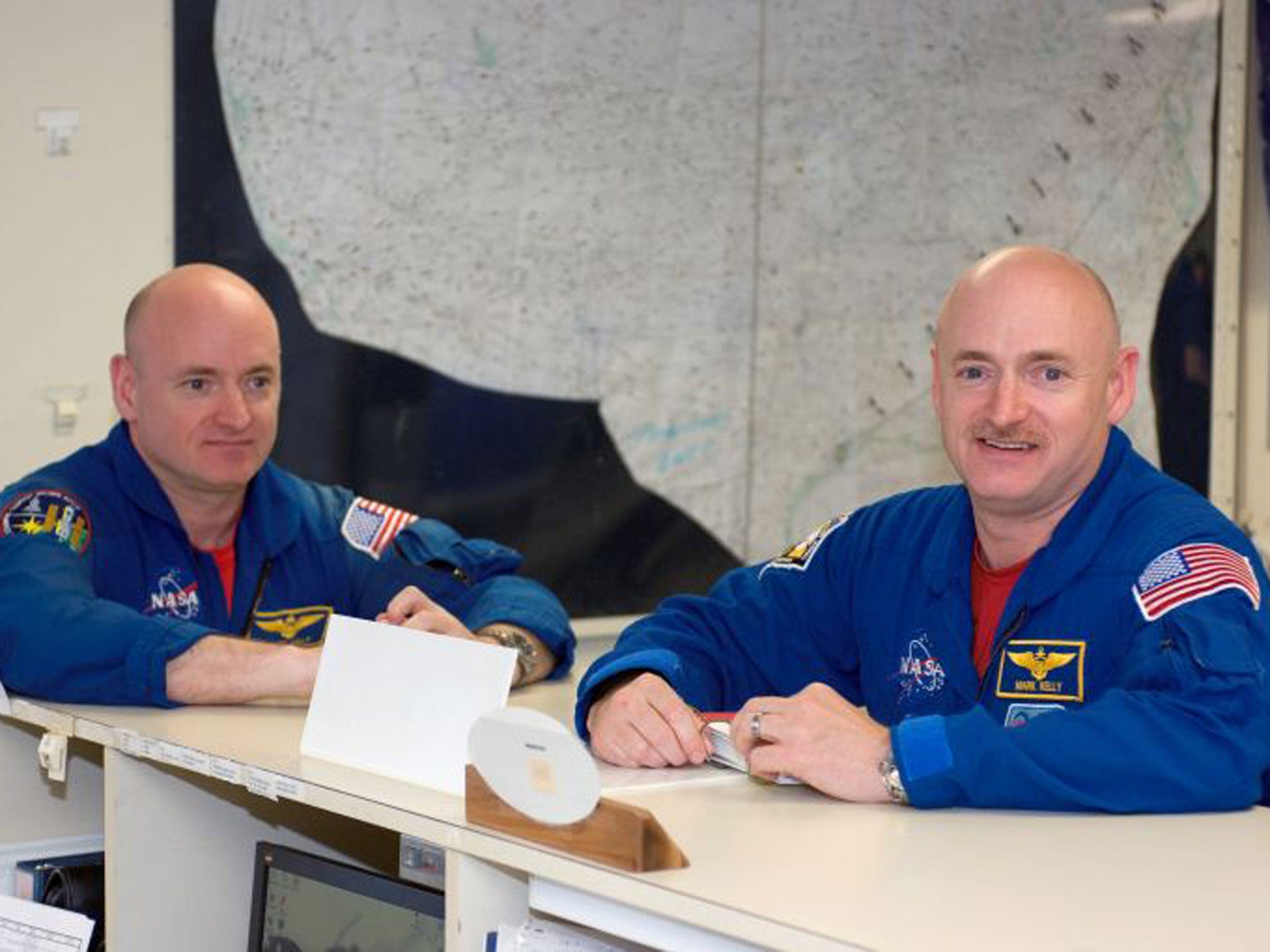Page 3 Profile: Scott and Mark Kelly, astronauts

I appear to be seeing double – should I get my prescription checked?
First there was Romulus and Remus, then there was Ronnie and Reggie, now there’s Scott and Mark. Nasa is launching a first-of-its-kind study observing identical twins Scott and Mark Kelly over the course of a year.
Studies of twins? They’re ten a penny...
Not this one. The space agency intends to discover more about how long-term spaceflight affects the human body by sending one of the brothers into space while the other remains on terra firma. Astronaut Scott will circle planet Earth aboard the International Space Station from March 2015 for 12 months – longer than any person before him and double the standard amount of time. Mark will stay behind for the duration.
Why does Scott get to have all the fun orbiting Earth?
Mark, who is six minutes older than Scott, is a retired astronaut so will act as a kind of ‘control’ in the experiment, allowing their bodies to be closely compared. Scientists will conduct tests on the twins, who are 50 years old and hail from Orange, New Jersey, before, during and after the mission. The study will help scientists learn how to counteract stressors in space such as radiation, weightlessness, confinement, and monotony.
Identical twin astronauts are quite a rarity…
Yes, it’s a unique opportunity that Nasa is excited to take advantage of. “Our DNA is not all that different, but it’s still different enough to make wildly different types of people,” Dr Craig Kundrot, deputy chief scientist for Nasa’s Human Research Program, said. “When you have identical twins, you’ve eliminated almost all of that difference.” He added: “We might be able to see things we ordinarily might not be able to detect if we were just taking two people out of the population.”
How does Scott feel about spending so long away from Earth?
Unperturbed. He has said that during his previous trip to the International Space Station, which began in 2010 and lasted six months, he felt he had fully adapted after the second month. The brothers, who came up with the idea of the study, are prepared to go to extraordinary lengths to gather new data. Scott has even volunteered to have a pressure probe put in his skull. “I thought it would be kind of cool to have a little bolt,” he said.
Join our commenting forum
Join thought-provoking conversations, follow other Independent readers and see their replies
Comments